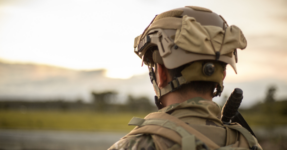United States Strips Military Commanders of Prosecutorial Powers

United States President Joe Biden has ordered an historic change to the way serious crimes such as sexual assaults and murders that are allegedly committed by defence personnel are dealt with, transferring prosecutorial powers from commanders to an independent body called the Offices of Special Trial Counsel (OSTC).
The presidential order
President Biden signed the order last week which effectively means the military will no longer be empowered to police itself when it comes to alleged serious criminal offences.
The move comes after years of criticism of the way in which the military deals with suspected crimes, the main one being that alleged offenders have on the whole been allowed to avoid prosecution altogether or, when prosecuted, faced charges which are not serious enough to reflect the offending behaviour.
The other primary criticism is that the decision to prosecute has often taken many years to arrive at, much like the consideration of charges following our own 2020 Brereton report – which has seen only one person charged in three years despite recommendations that dozens of Australian soldiers be brought before our courts over alleged war crimes in Afghanistan.
Mr Biden’s decision is expected to lead to swift decisions regarding whether or not to prosecute defence personnel who are suspected of committing serious crimes.
Not without resistance
The initiative was certainly not without resistance – as the military’s top brass have been campaigning for the system to remain the same despite its conflicts of interest and serious shortcomings.
But the problems became too prevalent and serious to ignore, and the OSTC – a specialist panel of independent military prosecutors – will soon start to make prosecutorial decisions involving allegations of sexual assault, domestic violence, child abuse, murder and other violent crimes that are alleged to have occurred within the nation’s armed forces.
Decisions will be final
The changes essentially mean senior officers within the military will no longer have the authority to decide whether or not to pursue charges when allegations of misconduct or criminal behaviour have been made.
And significantly, the decisions made by OSTC special prosecutors will be final and binding – they cannot be overridden by commanders.
The campaign for change
Pressure for change has come largely from advocates of sexual assault victims who said their cases were not taken seriously by superiors and were often ‘blocked’ by commanders. Some sexual assault complainants have been brutally assaulted for even speaking out.
There have been horrific high profiles cases in recent years too, such as the murder of Vanessa Guillen, whose burned and mutilated body was discovered after she had tried to report instances of sexual harassment by another soldier.
According to the US Army, the soldier she complained about killed her and later himself.
Statistics show that women make up only about 16 percent of the US forces, yet one in four say they have been sexually assaulted – included in the legislative changes are better protections for victims and whistleblowers.
Of course, these types of initiatives always sound great in theory. Only when they are put into practice – in full – can change really begin to occur.
But Australia should be watching closely – perhaps there are lessons we can learn, or parts of the new US model that we can emulate.
Ineffectiveness of system in Australia
The Office Special Investigations (OSI) which was set up after the Brereton Report, is working closely with the Australian Federal Police to investigate allegations of war crimes committed by Australian soldiers in Afghanistan.
But many would agree that progress is painstakingly slow.
In fact, so slow that recently, Senator Jacqui Lambie (a former corporal in the Australian Army) stated her intention to send files to the International Criminal Court for investigation. It will only intervene if it believes Australia is not doing enough to investigate, and where necessary, prosecute war crimes.
Only one person to date has been charged with war crimes.
Since the release of the Brereton Report, and throughout the high profile defamation case of Ben Roberts Smith against The Age, The Sydney Morning Herald and The Canberra Times, as well as several of their journalists, and the subsequent decision of the Federal Court which decided in favour of the media, a good deal of information about various incidents of misconduct have been reported – and they paint a very damning picture of toxic behaviour, toxic mateship, bullying and cover ups within the Australian Defence Force.
The ‘plague’ of Defence and Veteran suicide
Now, we have the Royal Commission into Defence and Veteran Suicide which is currently conducting hearings of inquiry around the nation. Already, it has heard many harrowing stories of sexual assault. And also the stories of neglect, from people who have suffered serious mental health issues, and yet were ignored when they reached out for help.
It’s not difficult to draw a distinct correlation between the current culture of the ADF and its negative impact on many people who have joined the forces.
In recent days the Royal Commission’s chair Nick Kaldas has said that “the magnitude of the problem must not be underestimated,” and further that evidence heard so far has cast major doubt on the ADF’s capacity to protect the mental health and well-being of serving members.
“The stark reality is that failure to act by successive governments, defence and other agencies – for whatever reason – has cost lives,” he said.
Mr Kaldas has also criticised the ADF’s failure to properly account for the number of defence force personnel and veteran suicides, and analyse these incidents, which has meant that little data on real, useful numbers is actually available.
One publicly released figure is that 1,600 ADF members and veterans died by suicide between 1997 and 2020. The numbers show that the rate of suicide among male veterans was 27 per cent higher than the general Australian population and for female veterans it was 107 per cent higher.
But, Mr Kaldas’ comments suggest that the problem is vastly under-reported, and could in fact be much more tragic that we have been led to believe.
The inquiry has also heard evidence of bullying, harassment and misogyny.
Are we surprised? It was Defence Force Chief Angus Campbell who told new recruits that “women need to change their behaviour” to avoid being sexually assaulted.
It is also difficult for ADF members to report incidents and to receive the help they need.
The Department of Veterans Affairs (DVA) offers a range of help for veterans, yet evidence suggests that these people – who are hanging onto threads of their mental health – are largely left to navigate the system alone.
It’s also been reported that such is the demand on the DVA that it has tens of thousands of back-logged claims for such things as injury compensation, and some veterans have waited more than 300 days – almost a year – to receive a decision.
Lack of Accountability
Taxpayers, sitting on the sidelines, are perhaps becoming a little fatigued by the continual reporting of these types of large-scale failures.
“Oh, another government department not performing? That sounds about right.”
But we cannot let this kind of apathy overtake our attitude towards the conduct of those in government or other positions of leadership and authority.
What can Australia learn from the United States?
Time and again we pour millions of dollars of public funds into Royal Commissions, the results of which our politicians trot out under the guise of ‘transparency’.
But usually very little ever changes. And, has been said before, without accountability there will never be responsibility.
Mr Kaldas has said that when the Royal Commission’s local hearings wrap up, the team will be heading to the US to see what America is doing in response to similar issues it is facing within its armed forces.
We can only hope that this leads to something much better than the status quo.







